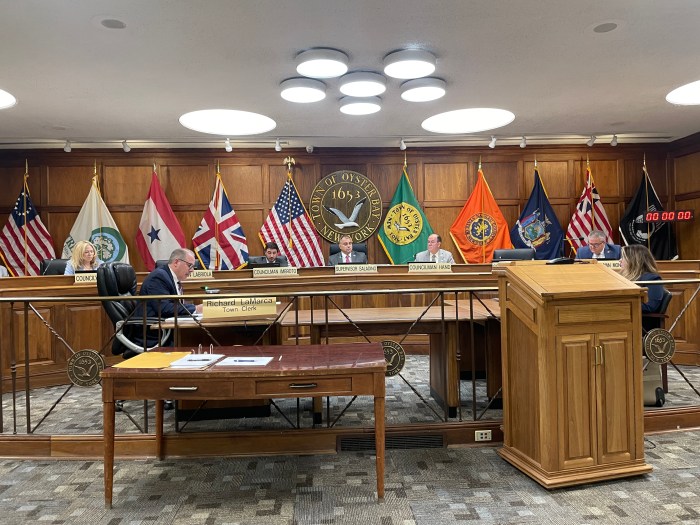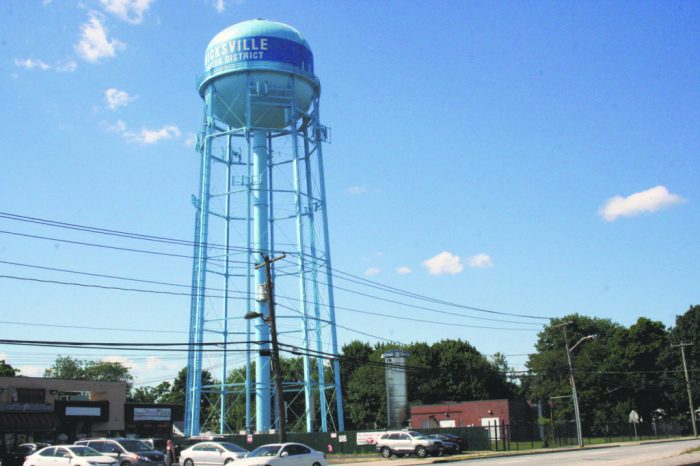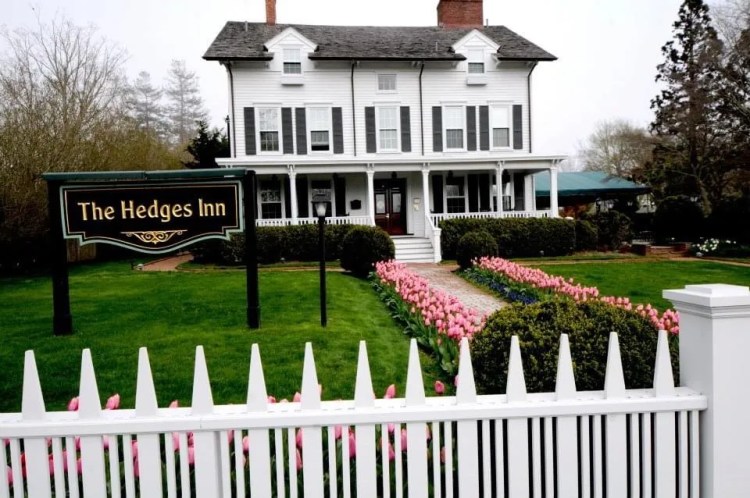Suffolk County lawmakers and environmentalists have struck a deal that ends a three-year legal battle and restores $30 million taken from the county’s Drinking Water Protection Program that was diverted to balance the county’s budget.
Suffolk County Executive Steve Bellone announced the deal Wednesday during a news conference at Blydenburgh County Park in Smithtown along with leaders of the Long Island Pine Barrens Society (LIPBS), which sued to block the move, and the Group for the East End, a nonprofit that had been petitioning to have a referendum on ballots in November requesting that the funds be restored.
“The settlement actually restores the funds previously taken and prevents a recurrence,” said Richard Amper, executive director of the LIPBS, which had filed lawsuits against both Bellone and his predecessor, Steve Levy, for similar budget actions in 2013 and 2011, respectively.
The county executive’s office also said that Bellone will propose a Charter Amendment referendum on Election Day to settle once and for all that “any changes to any part of the Drinking Water Protection Program can only be accomplished via mandatory referendum.”
The settlement also permits “limited county borrowing” from the Assessment Stabilization Reserve Fund that helps control sewer rates but can’t be used for land preservation or other water quality programs, according to LIPBS. The county will borrow $29.4 million to restore the funds it already borrowed without a referendum.
A public hearing on the referendum proposal will be held when the county legislature meets in Riverhead on June 17 before the panel votes July 29 to decide whether to put the question to voters on the November ballot.
“This is a good faith effort on the part of the County Executive and County Legislature to right a wrong and begin the process of restoring drinking and surface water quality,” Amper said.
Prior to this agreement, LIPBS had joined the Group for the East End on a petition drive to put a proposition on the November ballot that would have required Suffolk to return the money taken from the fund and prohibit similar action in the future. They argued that the protection program’s funding, which comes from a ¼ cent sales tax created in the 1980s, couldn’t be altered without voter approval.
Bellone and his supporters in the Legislature, faced with serious budget shortfalls, didn’t see it that way.
“Every resident of Suffolk County should feel good about this settlement and not just for its environmental benefits,” said Robert DeLuca, president of the Group for the East End. “What this agreement demonstrates is that no matter how difficult the challenge, government can and does rise above the status quo when it is moved by an organized, mobilized citizenry that acts with purpose, passion and persistence.”
Also pleased with the outcome was Adrienne Esposito, executive director of the nonprofit Citizens Campaign for the Environment, who helped hammer out the agreement without being a party to the lawsuits or participating in the petition drive.
“This settlement provides for more funding for land preservation, fixing old sewer systems, and implementing water quality protection programs,” said Esposito. “It does all of that while keeping the integrity of the water protection program intact. It was a hard-fought negotiation with terrific results.”































